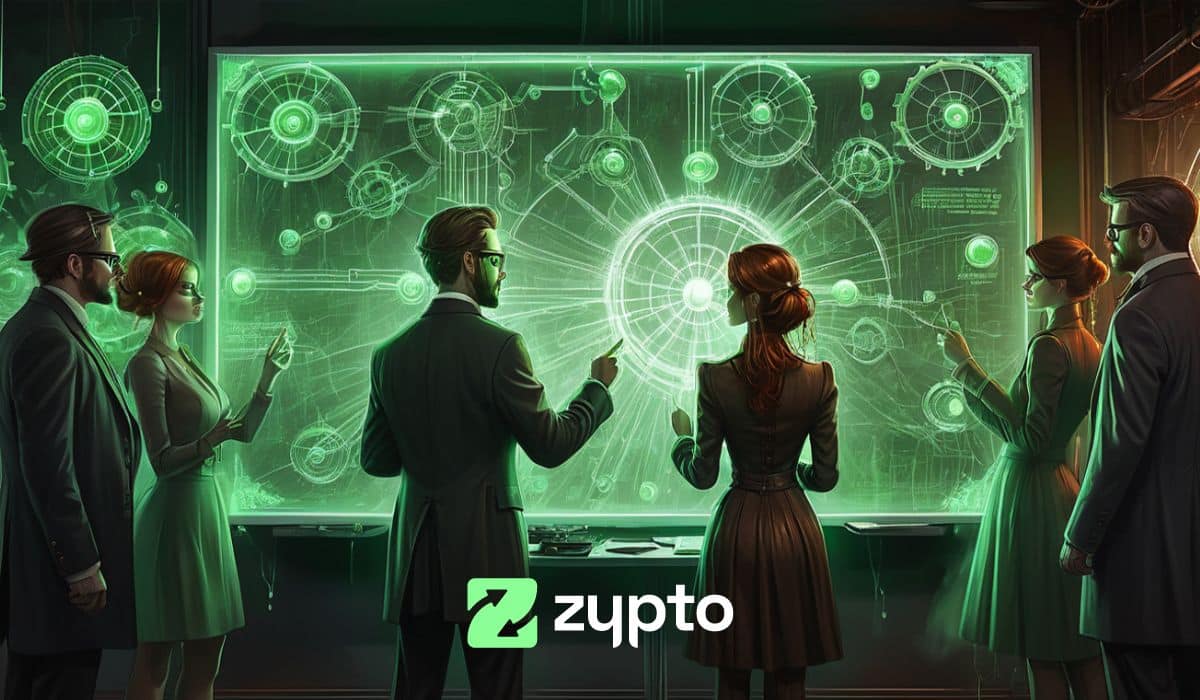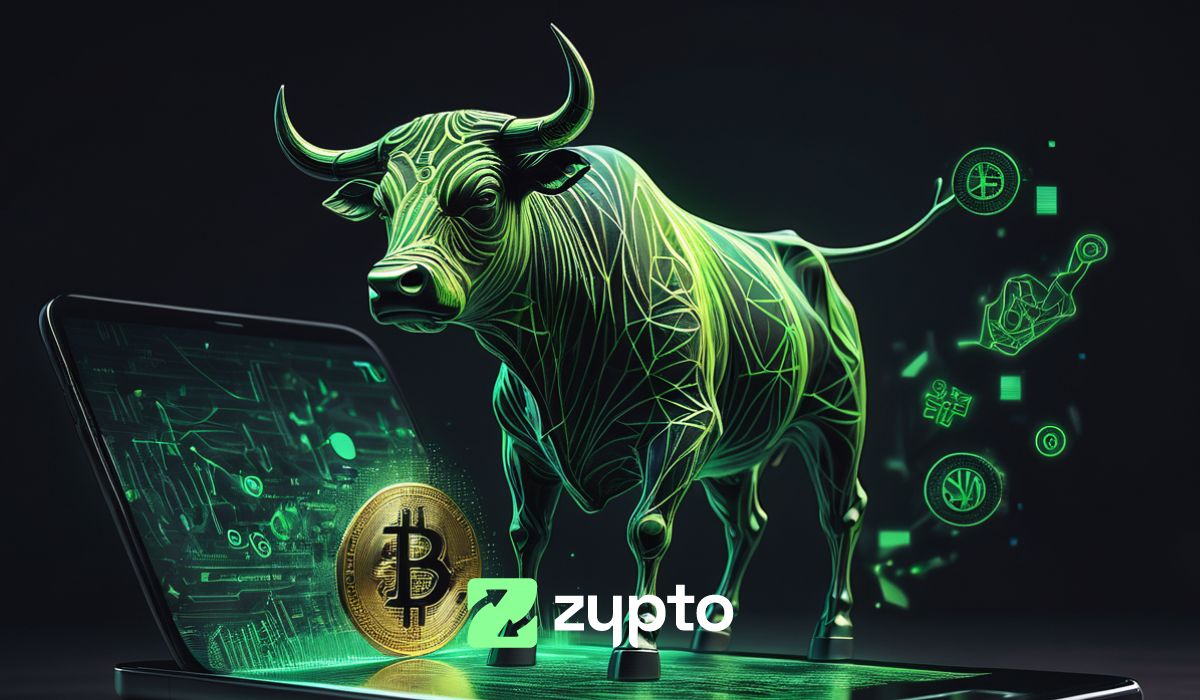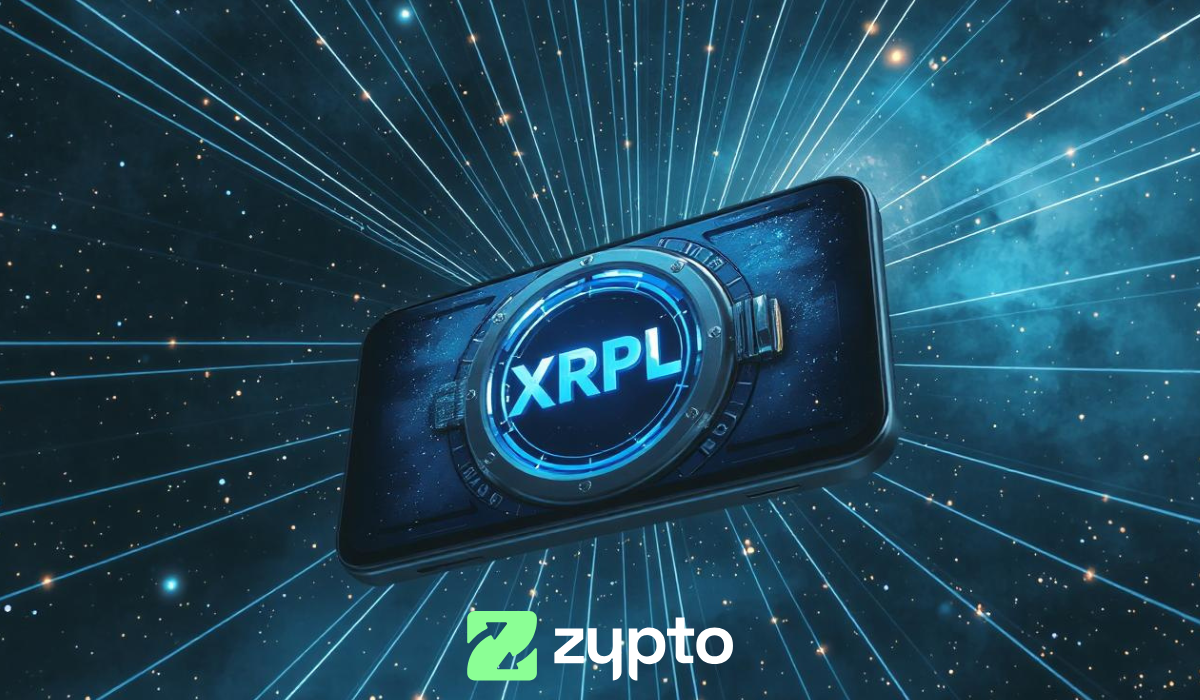Over the years, blockchain technology has been a leader in terms of innovative models for several businesses.
Not only has the adoption of technology brought about transformative business models that make profits, but it has also been a driver of excellent operating models, products, services, and wonderful consumer experiences.
In this article, you will learn amazing stories of individuals, companies, and corporations using blockchain adoption to transform their businesses.
Blockchain Adoption
Innovation is generally accepted as a source of competitive advantage in a rapidly changing environment, especially in a world with sustainable business operations.
Like foundational technologies of the past decades and centuries, business innovation through blockchain requires change at the system level to accelerate the broader adoption of blockchain technology.
Incorporating blockchain technology into business operations was initially met with resistance. Many naysayers prophesied doom and failure. However, the successes of many businesses that embraced blockchain is evident for all to see.
The downsides of blockchain adoption deterred many businesses from adopting the paradigm shift but these downsides were not enough to discourage the big players who are now enjoying a boom. Let’s take a closer look.

What is Blockchain?
Blockchain is a decentralized ledger distributed among a computer network’s nodes. Its most prominent reputation lies in its pivotal function within the cryptocurrency systems, ensuring the integrity and distribution of transaction records.
However, its utility extends beyond cryptocurrencies. Blockchain stores data immutably ensuring that there is no possibility of manipulation.
Since a block is immutable, the only requirement for trust is when a user or program inputs data. This diminishes the necessity for intermediaries, typically auditors or other individuals, who incur expenses and commit errors.
Since its introduction in 2009 with Bitcoin, blockchain technology has experienced a swift and significant development.
The emergence of different cryptocurrencies, decentralized finance (DeFi) applications, non-fungible tokens (NFTs), and smart contracts have triggered a significant shift. The rapid expansion of blockchain is evidence of its limitless opportunities and capacity.
Related: A Beginner’s Guide to Blockchain Technology
Early Adopters of Blockchain Technology
Two significant industries adopted blockchain technology – the finance and supply chain industries.
Bitcoin, a decentralized and secure form of blockchain, was the first successful implementation. When it was introduced, it initially allowed peer-to-peer transactions without the need for intermediaries. However, the functionality of Bitcoin has expanded with many utilities springing up every day.
Apart from Bitcoin, Ethereum came on board as a household name in smart contracts. This technology enables automated and self-executing contracts with the terms of the agreement directly written into codes.
The advantages of blockchain technology are not limited to smart contracts and peer-to-peer transactions alone; in fact, companies like JP Morgan developed JPM Coin to reduce transaction costs.
Walmart, for example, woke up early to blockchain technology adoption. Blockchain has helped the company organize its supply chain management, which ensures products are tracked easily from the original equipment manufacturer to the customer.
These early adopters of blockchain technology opened the door to cascades of events that triggered many companies to incorporate blockchain into their operations.
Related: What are Smart Contracts in Blockchain and Web3?

Stories of Boom with Blockchain
Ripple
The success story of Ripple provides a compelling case study of the huge potential that blockchain technology has for the financial industry.
Financial institutions worldwide are using Ripple more frequently because it emphasizes finding solutions to practical issues like cross-border payments.
Known for its flagship payment products, Ripple was the first to use blockchain technology and cryptocurrencies to address the significant difficulties associated with international payments.
With payout capabilities in over 70 markets, Ripple currently serves hundreds of customers across six continents and over 55 nations.
Now accessible in the United States, the recently introduced Ripple Payments service will expand to more areas in 2024, depending on jurisdiction. Each jurisdiction will have different items and features available.
The lesson is that blockchain technology’s real potential lies in its capacity to solve real-world problems in established industries.
Blockchain projects will continue to garner popularity as they offer solutions that lower costs and increase efficiency.
Related: How to buy Ripple (XRP) on Zypto App
Trust Your Supplier
Trust Your Supplier’s story is built on cultivating trust and openness in supplier management. They identified a requirement for a more effective, safe, and reliable method of handling supplier information.
Consequently, they embarked on creating a platform based on blockchain technology to revolutionize supplier management for buyers and suppliers.
Before witnessing a surge in blockchain technology, their goal has been to reduce manual errors, expedite supplier onboarding, and eliminate unnecessary data requests.
Suppliers’ ability to organize and preserve their data in a single, central location lessens the workload associated with administrative and compliance duties.
The initiative was to develop an open-source blockchain technology, in partnership with IBM that enables companies to safely and efficiently share data with preferred partners.
Businesses can use the platform to get data validation from third-party verifiers like Dun & Bradstreet and Eco Vadis.
The apparent results were mind-blowing. With Blockchain technology, they reduced supplier onboarding duration by more than 70%, which is huge in terms of efficiency.
One of the most significant benefits was the cost reduction. With this technology, the cost of data verification to work with a suitable supplier was reduced by a substantial 50%, a significant saving for businesses.
Related: Blockchain in the Healthcare Industry

Renault
Luxury automaker group Renault tested blockchain technology in 2020 to make compliance certification of automotive components easier.
The Extended Compliance End-to-End Distributed project, or XCEED as it is popularly called, sprang from Renault’s collaboration with other businesses to share data and create a blockchain supply chain solution.
Built on the Hyperledger Fabric network, it is implemented with the popular IBM XCEED and certifies and monitors automotive component regulatory compliance.
The results of this integration and novel approach to creating the automotive industry’s first extended compliance end-to-end distributed blockchain platform were amazing.
After using blockchain technology, the business reduced the expense of non-compliance by half. That is a huge win and a plus. Even though Renault is a well known French automotive company, they experienced an unprecedented boom after integrating blockchain technology.
Related: Blockchain: What is It and What Does It Do?
Nestle
When the 2008 melamine scandal shattered the trust of Chinese parents in baby food, Nestle was determined to restore faith.
The key was to showcase the unique qualities of its newborn feeding product, NAN A2, and convince parents of its superiority, paving the way for a successful entry into the market.
Though straightforward, the initiative is fun. Nestle collaborated with Chinese technology company Techrock on a public blockchain network that connects with a smartphone app.
Parents can use their cellphones to check the contents of the NAN A2, where they are sourced, where the production originated, and package information.
After introducing the technology, Nestle gained the largest market share in China’s infant nourishment sector. Transparency was at the forefront with blockchain, resulting in higher sales and customer retention.
Related: Decentralized Applications (DApps): What You Need to Know
Petrofac
Another business that experienced a boom is Petrofac after developing one of the energy industry’s first connected worker solutions.
In the UK Continental Shelf, oil and gas operators always strive to enhance economic recovery by emphasizing efficiency, optimization, and cost reduction.
Petrofac has acknowledged the immense potential of digital transformation to enhance its operational efficiency and achieve its strategic goals.
The company has embraced digital technologies as essential tools for advancing its vision, promising a future of increased efficiency and productivity.
Through a long standing collaboration, Petrofac and Accenture are revolutionizing Petrofac’s approach to upstream operations, engineering, and construction.
The team has begun implementing a digitally empowered workforce with blockchain technology as part of efforts to increase efficiency.
Implementing a connected worker solution at Petrofac has enhanced efficiency and safety, faster decision-making, better coordination of onshore and offshore assets, and improved knowledge transfer and upskilling.
Using interactive remote assistance, onshore subject matter experts can effectively guide offshore engineers in troubleshooting incidents and scoping necessary repairs. This approach also enables them to conduct real-time checks on equipment, minimizing the risk of future failures.
Executing procedures using digital work instructions and documenting equipment evidence before leaving the platform can significantly improve the handover process between supervisors, saving valuable time.
These enhancements have increased worker productivity, performance, and safety, positioning Petrofac on a solid foundation that embraces digitalization, looks ahead, and excels in a fiercely competitive energy sector with blockchain technology.
Other companies that experienced a boom with a blockchain-based network include MediLedger and Walmart.
Related: Top 10 Real-World Use Cases of Web3 in 2025

Benefits of Blockchain Technology
Apart from the benefits these companies have experienced and enjoyed from blockchain technology, other benefits cut across different industries.
The cybersecurity industry can use blockchain technology to mitigate cyberattacks. Furthermore, the role of blockchain in business data privacy and threats cannot be overemphasized.
The blockchain creates an irreversible, end-to-end encrypted record, which helps prevent fraud and illegal activities. You can handle privacy concerns on the blockchain by using permissions to restrict access and anonymize personal data.
Blockchain has also helped businesses achieve their marketing goals. An example is Konvart, an AI and blockchain platform that has helped companies reach more audiences in a limited period.
It’s important to understand that blockchain technology, while beneficial in many ways, is not without its costs. The proof-of-work mechanism, a vital component of the Bitcoin network, consumes a staggering amount of processing power.
To put it into perspective, the energy used by the Bitcoin network’s millions of machines annually surpasses that of a country like Pakistan.
There are some answers to these problems. For instance, wind farms, solar power, or excess natural gas from fracking sites have all been used to power Bitcoin mining farms.
Related: Crypto Mining: The Energy Debate
Conclusion
Despite its numerous practical use cases in cryptocurrency, blockchain is gaining recognition by the day owing largely to functionalities in other industries.
Blockchain is now a buzzword in almost every industry. It is constantly improving corporate and government operations by reducing intermediaries and increasing accuracy, efficiency, security, and cost.
Several industries have already utilized blockchain’s potency, gaining recognition for enhancing customer retention, providing personalized services, and safeguarding client data.
Cryptographic technique has been applied in various fields and industries, including supply chain management, finance, health, and sustainability.
As we approach the technology’s third decade, the question of when traditional organizations will fully adopt blockchain technology has replaced whether it will happen.
These days, NFTs are widely used, and assets are tokenized. Therefore, the ensuing decades will mark a critical juncture in the development of blockchain technology and how businesses will integrate it into their operations.
Related: Real-World Asset (RWA) Tokenization: What Is It & How Does It Work?
Zypto Pay’s Advanced Crypto Payment Gateway
Digital money based on blockchain is a beneficial alternative to the current fiat-based economic system.
With Zypto Pay, businesses can take payments in over 100 cryptocurrencies on a wide range of blockchains, which customers store on DeFi wallets or centralized exchanges.
Once the funds are in the merchant’s Zypto Pay account, they can be offloaded to their bank account as fiat or in crypto to a degital wallet. For B2B, blockchain asset transfers are borderless, almost instant, and lightening-fast, perfect for international business.
Strengthen the growth of your business with Zypto right now and be part of our next boom success story.
Is there a story about business growth that resonates with you or lessons you picked in this article? Share your thoughts and reactions in the comments below.

FAQs
How can businesses benefit by using blockchain?
Businesses can benefit from blockchain by enhancing transparency, improving security through cryptographic methods, and reducing costs associated with intermediaries and manual processes.
It enables efficient and tamper-proof record-keeping, which can streamline operations and build trust with stakeholders.
What problems does blockchain solve?
Blockchain addresses issues such as fraud, data manipulation, and lack of transparency by providing a decentralized and immutable ledger.
It also reduces the need for intermediaries, which can lower transaction costs and increase efficiency.
Are companies adopting blockchain?
Yes, many companies are adopting blockchain technology across various industries, including finance, supply chain management, healthcare, and more.
They use it for applications such as secure transactions, smart contracts, and improved data management.






















In my Opinion – and that’s what made me invest into Zypto already >2,5 years ago – Decentralized Finance is one of Blockchain Technologies greatest usecases.
The Mass Adoption of a P2P Payment Systems, without Governmental Control.
So far, most approaches of several Projects & Coins failed in coming close to that ideal.
And even Bitcoin itself lacks the Practicability and Speed to fullfill Satoshi Nakamotos Dream.
But Zypto is on it’s way to bring true Utility to Defi. Making Crypto Payments easy and accessible everywhere for everybody.
With Zyptoapp and Zyptopay, as well as all it’s integrated Services, I believe Zypto can truly become a household Name in Crypto.
Fullfilling the Dream of an actual working, global P2P Payment System.
It was interesting to read how so many different industries have utilised blockchain technology to improve efficiencies within their work practices. It will be exciting to see where this technology will be used in the future in innovative ways to solve problems that we haven’t even thought of yet!
The use of blockchain in the financial system seems to be the greatest use case to me. We live in an ever-shrinking world where borders are blurred and international collaboration is the new normal. DeFi is truly the answer to aging financial infrastructure that doesn’t cater to our modern worlds needs.
BTC opened the door, and Ripple mapped the course, for Zypto to become the worlds financial bridge. Zypto’s use of blockchain technology and understanding of what user’s really want when it comes to ease of purchasing with DeFi currency is a game changer.
It’s an exciting time for blockchain technology, and I’m glad I am here to see Zypto help it take it’s next great leap forward!
An encouraging Article about Success Stories in Using and Investing into Blockchain Technology!
I hope, being able to add my own Zypto Investors Success Story to this Blog one day soon! 🔥
For me (so NFA 😊), Investing into Crypto doesnt mean just throwing a few hundred Dollars onto several random Projects.
For me, it means REALLY to DECIDE on a Project worth it and especially put in the following Ingredients:
1.) Positive Energy and Individual Believe- into the Cause, the Team and Community
1.) Money – a quantity that deserves the Name “Investment”
2.) Dedication – the will to engage, support and promote your Project and Investment
3.) Time – to let it grow, develop and cope with obstacles
4.) Patience – connected to trust, not to look on short-term Token Charts or temporarely Market Conditions.
With those Ingredients (basically the same as for any non-crypto Investment) chances might be good, to actually achieve a groundbreaking Succes.
Like making Zypto a Household Brand in Crypto and Defi 🦄🔥
So lots of Success to Zypto and all it’s Investors, Users, Supporters and Believers 🙏❤️